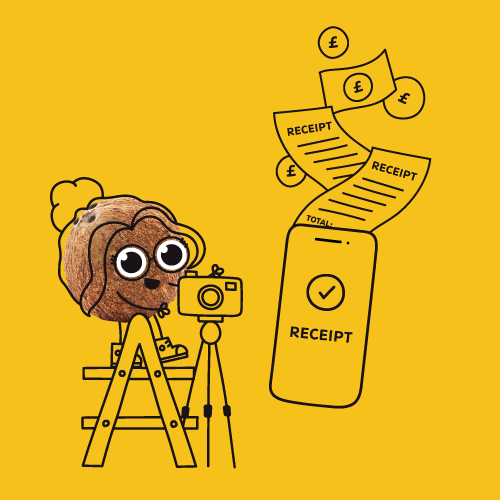Cash is king. You’ve probably heard that before, but what does it mean? Well, although price and profit are very important, they’re not as vital as cash, the lifeblood of all businesses.
You could have a great brand, superb products and services, an impressive regular customer list and plenty of sales. But if you run out of cash, can’t access any more and your creditors want their money – it’s game over. Businesses die because they run out of cash, even otherwise successful ones, which is why you must limit the risk that it will happen to you.
Need to know! Controlling your cash flow must be a key priority. If you’re not careful, cash flow problems can sneak up on you and kill your business. Maximising your sales income is essential to good cashflow.
What is cash flow?
● Cash flow is the relationship between cash entering and leaving your business within a specific time period.
● Your cash flow is positive when there’s a surplus of cash within your business.
● Your cash flow is negative if you spend more than you make or your credit control fails and you’re not paid money you’re owed on time.
● When businesses run out of cash, they experience a cash flow crisis. This is common, although a serious cash flow problem or continual cash flow problems can soon spell the end for your business.
To minimise the risk that you’ll experience serious cash flow issues, here are the main dos and don’ts of cashflow control. Many points apply if you’re a landlord or if you just want to keep your personal cash flow healthy.
COSTS
● DO minimise your costs. Always spend as little as possible to run your business in the best way possible. Eliminate all unnecessary spending.
● DON’T buy anything that your business doesn’t need.
● DO negotiate firmly with all your suppliers and seek the best value (which is not necessarily the same as the lowest price). The less you spend, the healthier your cash flow will be.
● DON’T let your monthly business outgoings exceed your monthly business income. Sooner or later, it will create cash flow problems.
Top tip! Regularly assess your costs, at least every quarter, and reduce them where possible.
PRICES
● DO maximise your profit margins when setting your prices, but caution is advised.
● DON’T set your prices too high so that they put off customers, but don’t go too low either, because you’ll needlessly throw away profit.
● DO set your prices at an “optimum level”, which means maximising your profit while keeping your prices attractive to your customers.
● DON’T put your prices up without knowing how your customers are likely to react. If in doubt, ask them. Also make sure you know how much your competitors charge. You need to remain competitive.
Top tip! Many business owners shy away from increasing their prices, because they’re scared that they’ll lose customers. But if your costs have gone up and you don’t increase your prices, your cash flow and profitability will suffer.
CREDIT
● DO negotiate as favourable credit terms as possible from all of your suppliers. The longer you have to pay your suppliers, the better it will be for your cash flow.
● DON’T have unrealistic credit expectations. Your suppliers have bills to pay, too.
● DO carefully consider the cash flow implications if a supplier asks you to spend more to get more time to pay.
● DON’T just ignore the payment terms you’ve negotiated with your suppliers. If you are a habitual late-payer, they could take away your credit and insist on cash on delivery.
Need to know! Don’t give you clients/customers too much credit or too long to pay you, as both will impact your cash flow. If possible, don’t give credit to new customers until they’ve earned it.
INVOICING
● DO get your invoices to your clients/customers as soon as possible. The longer you take, the greater the strain on your cash flow.
● DON’T make any errors with the details in your invoices, because it will lead to unnecessary payment delays, which impact your cash flow.
● DO chase invoices for payment as soon as they’re overdue. It’s your money and you have every right to ask for it.
● DON’T be too soft. Be firm and determined yet remain friendly and professional when chasing unpaid invoices. Your customer/client may have valid reasons for late payment.
Top tip! Many small businesses use invoice finance to ease their cash flow. Basically, a bank or other provider buys your unpaid invoices for a percentage of the due amount and you or they seek payment from your customer. Although, there is a cost, you get paid sooner, which is better for your cash flow.
Using Coconut, you can create and send invoices, connect your bank account and see how much tax you owe. Sign up for your 30-day free trial now.











